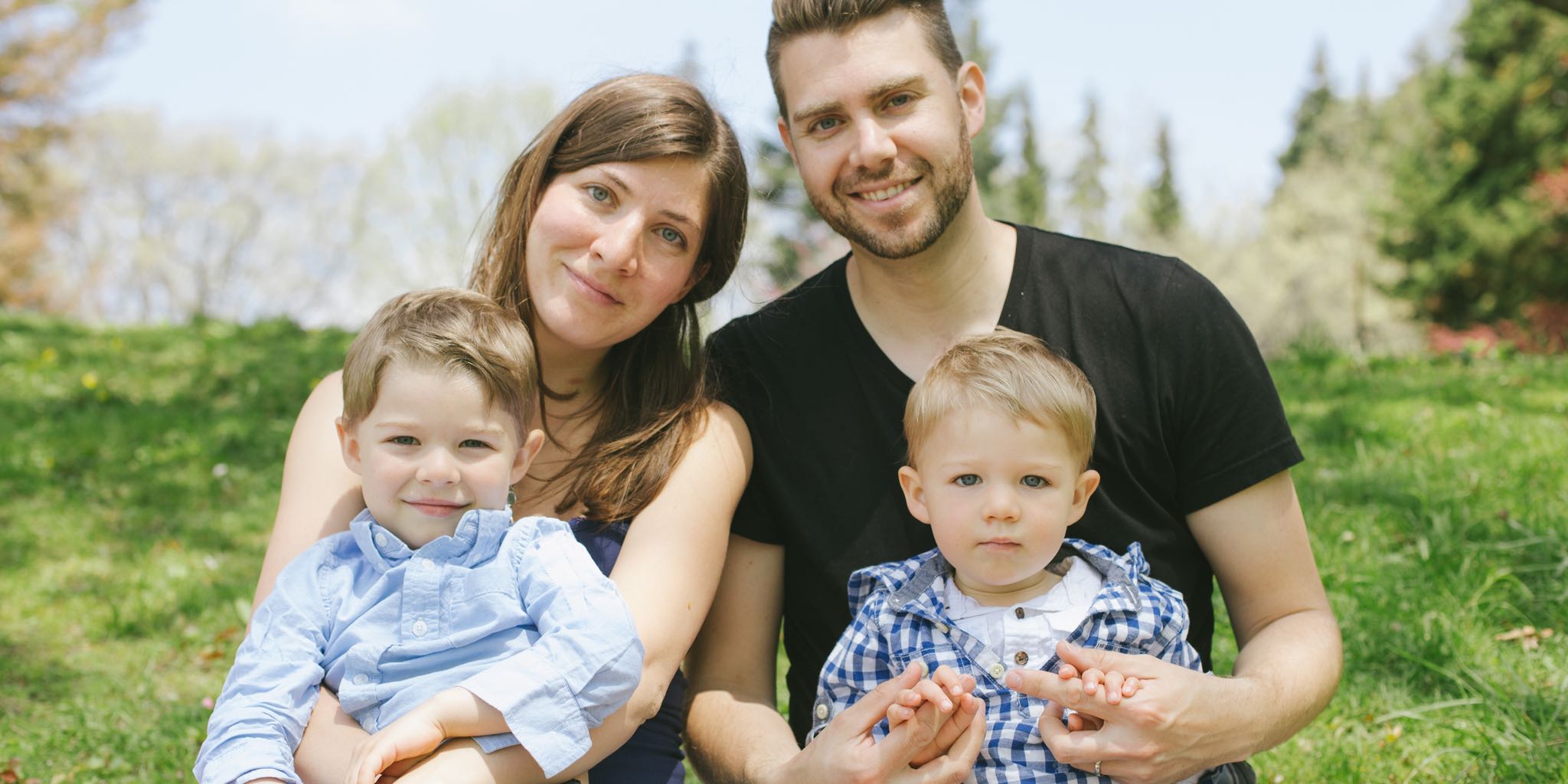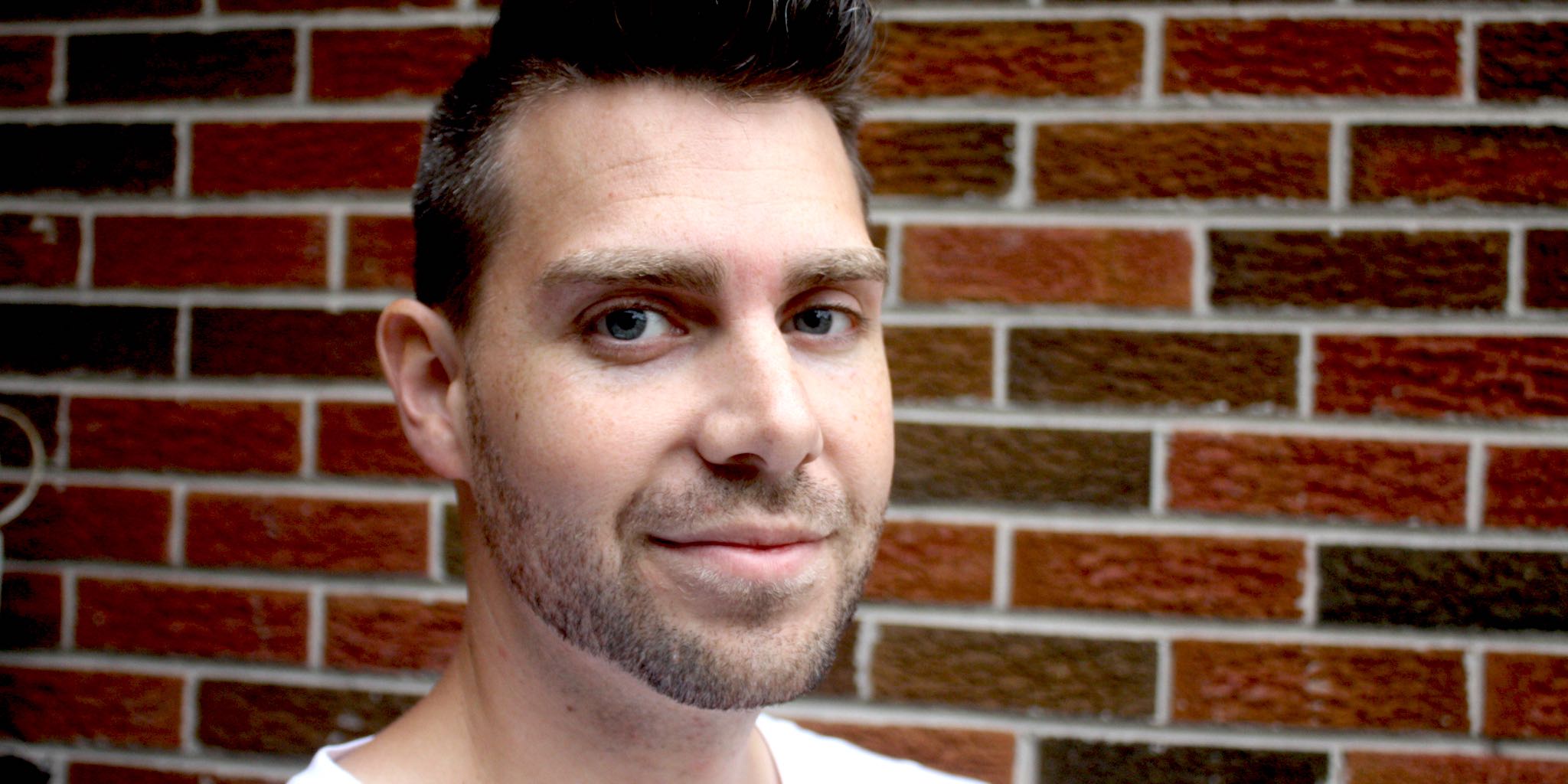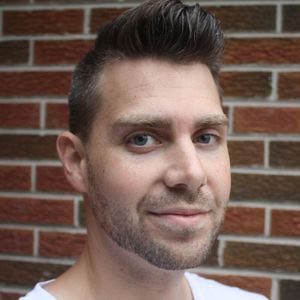Interview with James Tonn
Michael Sliwinski: James has been on our Productive! team for a while now, helping us edit and proofread the magazine. He launched his own business about two years ago and since then it has been doing really great. James will tell you all about it :)
James Tonn: Productive! Magazine has had a huge influence on me — it made a big difference over the years going through all these productivity articles and then trying little experiments in my work day. When I first started editing the magazine I was working as a manager, and I was trying to figure out how I could apply these productivity techniques I was learning about. Shortly after that, I became a consultant, and then I started my own business — an audiobook publishing company called Podium Publishing.
Michael: What do you do?
James: We publish audiobooks. We’re focused on that one segment of the book industry and we’re trying to do it better than our competition, which can be hard since it’s a pretty tough market out there. All of the big five audiobook publishers are subsidiaries of big companies like Penguin Random House and Macmillan. These are organizations with lots of staff and lots of money, and we’re trying to beat them.
Michael: How is that possible?
James: When we created our corporate structure, right from day one, we wanted to design it in the most efficient and effective manner so that we wouldn’t have a lot of challenges that most startups have.
Michael: The strongest asset of this structure is making it scalable, right?
James: Exactly. You take a company, create it from day one to be scalable, and grow it over the years … It really comes down to being pretty minimal, launching before you really feel too comfortable, which you know happens in the software world, and learning along the way and making tweaks and testing. So it’s pretty fun.

Michael: That’s a cool success story. And getting to its beginning — did you drop your job and start the company or did you start the company on the side?
James: My co-founder, Greg Lawrence, who’s the Chief of Production, and I spent almost two years researching and studying the industry and figuring out exactly what was needed in that industry, and during that time we’d be working our day jobs. He was actually producing audiobooks for a lot of big publishers who were outsourcing work to him as a producer. Soon, he realized that these companies felt that the work he was doing was the same quality as their work and they were comfortable passing off his work as theirs.
At the same time, I was working in the procurement world, helping to spend large amounts of money and to defend the public interest with the money that was being spent and trying to make sure there were strategic alliances with the public and private sectors. So I was a manager in the public sector by day, and then every day at 10 o'clock at night, Greg and I would start working on our business until 2 o’clock in the morning. It was like that for about two years before we launched our first audiobook.
When we did, we designed a company that was scalable.
Michael: Did you go out and get funding?
James: If we had a whole bunch of funding right at the beginning, we could have just started launching audiobooks and doing that right away. But we didn’t really want to go that route for a couple reasons.
We both agreed on that. So, we put almost two years in without even making a cent in revenue. That takes a lot of dedication and passion for what you’re doing. When we launched, we shook hands and agreed that as co-founders, we wouldn’t take a cent out of the company for another two years. And so we put money in to start and as it produced revenue we rolled it over and kept reinvesting everything in the company to scale it up. One of the things that’s tough for a company is when you’re trying to take money out and grow it at the same time.
And that’s how I got into consulting — I had to minimize my hours and increase the amount per hour I could make. I branched off from a career-type management job to consulting in my field. Eventually, when our company was just before the two-year mark, we said okay, I think we’re going to start taking out some money here. So we kind of put aside our other stuff and focused fully on it. Now it’s only been just over two years since we launched our first audiobook.

Michael: Nice, it reminds me of me starting up Nozbe. At 4 pm, I would stop being a consultant for other companies and I would become the COO of Nozbe. I had a name badge they usually give you at conferences and I wrote COO Nozbe on it. I would wear it everyday from 4 pm until the evening when my wife would come home from her work :)*
James: Yeah, I had a newborn baby at the time we started actually, and my business partner had a baby as well, and after launch my wife and I had another baby. So, only when the kids were asleep could I jump into something. My partner and I had a boardroom that we would meet in at 10 o'clock every night. You have to have serious passion to be able to do that. Then if things get a little worse at work, you just think about this solid business you’re working on on the side, so all of a sudden you become a little more content with everything. You have a good career going for you, and you have a business that’s starting and it’s pretty exciting.
Michael: Your co-founder is more into audiobooks because he was always doing it. How did an interest in audiobooks start for you?
James: Keep in mind that in those early years, I was commuting to work — an hour by train in the morning and an hour by night. I was listening to audiobooks every day and went from consuming seven or eight print books a year to about twenty-five books a year because of audiobooks.
Michael: Same here :)
James: So, I understood audiobooks from the customer’s side and understood how to create partnerships, and my business partner really knew it from the production side — we each had backgrounds that matched nicely to create a good company.
Michael: So how did you organize the production to be able to scale it more and create more titles?
James: We launched our first audiobook in July 2012. It was actually the only audiobook that never made any money. It never even broke even but it was the cost of entry. We had to take a product and put it through our whole production system in order to tweak the machine.
Michael: The machine?
James: We essentially created a machine for production — a system — and we really wanted to make sure that it was really quick to market and efficient. A lot of our competitors were running large studios, flying in narrators from different cities, and so we started using a remote production model for the most part and trying to figure out how we could hit that same quality as other studios while doing remote production. So we made sure we had relationships with studios in different cities and with some home studios ensuring that they were all up to our standards. We built this virtual team working on our projects that collaborate together in a cohesive way.

Michael: So you have all these satellite studios that record for you. How do you make sure that the quality is right? That they have the right equipment? How do you coordinate your virtual team?
James: Creating a workplace culture for a remote company where people never see each other is really difficult. We created a list of value-added things we could provide all of the people that worked with us. First off was flexibility. Also, we also wanted to be able to pay people the day they were finished or immediately after they were done, since we knew larger companies were taking a month or two to pay invoices. Independent contractors work to support their families — we were trying to figure out how we could make it better for these people.
One thing that’s really helped us is submitting the narrators’ work for industry recognition. We’ve submitted titles for the Audies, which is kind of like the Oscars of audiobooks, and we were nominated. As well, just last week, we were nominated for seven of our audiobooks for the Voice Arts Awards we’ll be attending in New York City. We’re submitting this stuff on behalf of all the people working for us to give them recognition in the industry.
Michael: That’s great! Congratulations. Getting back to scalability though…
James: Yes, so with scaling, you depend a bit on industry growth and on your business model — a system. It’s like with email processing. You think you don’t need systems until you have a huge amount of content or a huge amount of stuff flowing through. If you’re only getting 50 or 100 emails a day, you might be able to manage it and do your best. When you have 200 or 300 or 400 emails, your systems break down and you need something much better than what you have been using so far. From day one, we kind of overbuilt this structure so that we could put through as many audiobooks as we want. We had redundancy in our positions, and we made sure we had backups for different types of things. Greg has great relationships in the audiobook industry to date has worked on over 700 audiobooks!
Michael: How many audiobooks has Podium Publishing published?
James: Over just two years, we’ve done over 100 audiobooks. But we’re not really aiming for quantity. We’re aiming for quality. At the beginning, it was a little bit more hit and miss, and now we’ve been able to hone what we know works well, what we’re really good at, and the authors that we can offer the most value.
Michael: So you want to control the core of your business and scale and delegate the processes?
James: Yeah, minimum effective dose. We had to figure out early on what the essential skeleton of our business was, and which things were part of this skeleton and which weren’t. For instance, we wanted to have a website because we thought that when talking to authors we would have to show them that we’re credible. But, we were able to get by for a long time without a website, or even business cards - we were too busy publishing audiobooks. We already had industry recognition and we had some cool celebrities that Greg had the opportunity to work with. When Hugh Laurie — Dr. House from the TV show — launched his audiobook, he said he wanted the best producer, the best quality, and the best narrator. The big publishing company that worked for him outsourced it to Greg! So he put together an award-winning audiobook for Hugh Laurie.
Michael: What are your plans? Are you going to open a big office anytime soon with lots of full-time employees?
James: So, here’s a funny story. We got into a great discussion a senior executive of Audible at a conference. They asked us how many employees we had. We looked at each other and said, “Well, zero technically. We’re not even really employees, we’re just co-founders.” They were like: “Oh, okay…” :) They knew about the big bestseller that we were nominated for (Andy Weir’s The Martian). They had already heard of us, and all our competitors have something like 150, 200, 300 staff. Penguin Random House has emerged and created this massive company, and so they’re really focused on a lot of quantity and a lot of manpower. We just thought, you know, we can’t out-staff them, or out-spend them, so let’s figure out what we can do best, and if we can be more efficient than a lot of other people, we can share the profit fairly with authors. That’s one of the values of our company that our authors see. We don’t have huge overheads and we don’t really want to have huge overheads, so if we can keep a team happy and motivated and feeling cohesive and create great stuff, without having an office building and staff and having to create locations, then we’ll keep doing it that way.
Michael: Great. I think that’s the way to go.
James: Our business model is all about efficiency and effectiveness. Our whole structure is built on the idea of the minimum effective dose. We ask ourselves, “What do we need? What are the exact things that control revenue and control sales?” We try not to spend a lot of money on marketing. We do sometimes, but we do more innovative stuff with cross promotion and strategic Facebook marketing. There is a cool quote about marketing that goes like this: “The future of marketing is like sex - only losers pay for it.” If your stuff is good enough, people will market it for you for free.
Watch the video interview with James:

